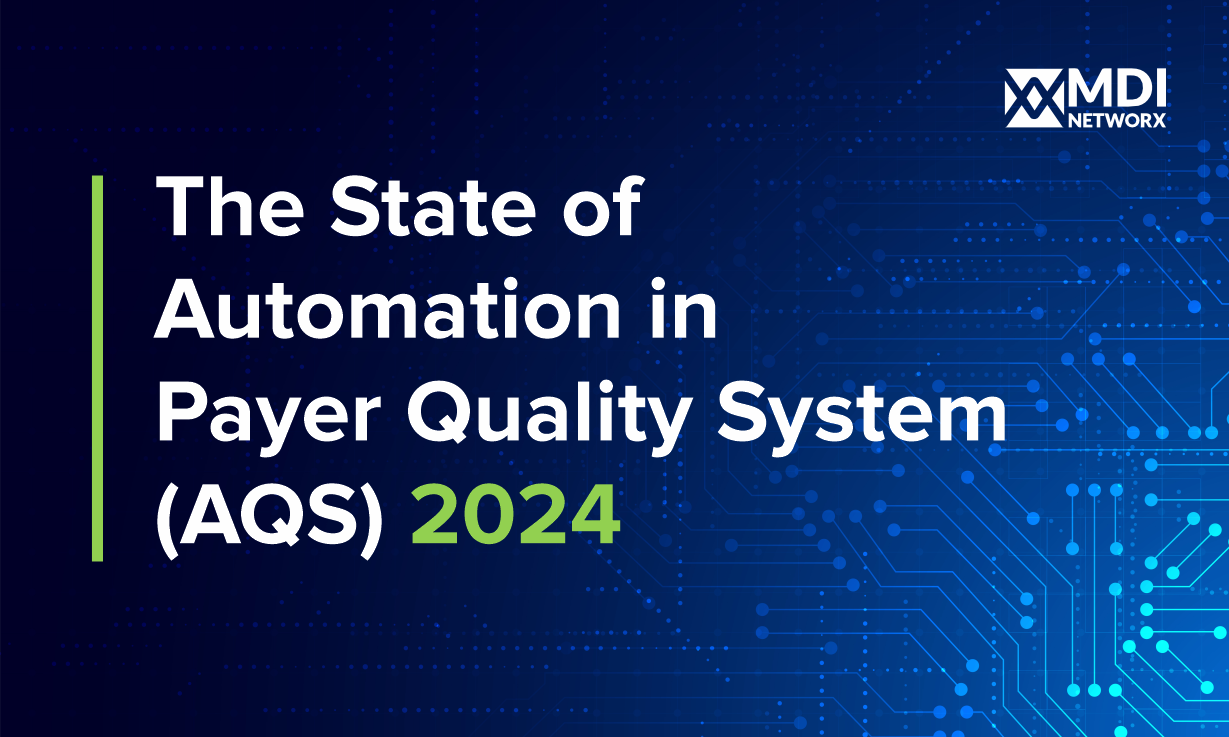In modern digital healthcare, the changes taking place show the influence of artificial intelligence and automation on most processes and, at the same time, transform these changes to another level, which is tremendous. One of the areas in which these are bringing about considerable changes is healthcare outsourcing, mostly medical billing and coding. AI and automation offer solutions that create a perfectly efficient RCM system that runs with elevated rates of productivity, which stresses healthcare organizations need to adopt due to the necessity of new regulations and an expanding patient base.
Role of AI in Revenue Cycle Management
AI has developed into a real game-changer within revenue cycle management with the onset of new features driven by automation and intelligence. The new RCM software equipped with advanced AI can analyze and detect mistakes in the claims submitted and have payors correct them before processing. Automating the partial billing functions enables healthcare professionals to treat their patients better, thereby contributing to greater medical treatment outcomes.
Medical Billing Automation Benefits
The integration of AI into medical billing and coding processes benefits a lot of healthcare organizations:
1. Efficiency and Accuracy: Automation reduces paperwork and minimizes errors related to data entry by hand. The accuracy of claims and billing automation reduces discrepancies and results in quick returns.
2. Time Conservation: Medical billing involves knowledge of complex policies for payment, which build over time and are subject to errors. Automation puts more time into direct patient care, which is for the good of long-term health outcomes.
3. Enhancing Patient Data Management: AI-driven medical billing software facilitates better management of patient billing data. All the billing information can now be kept in one place through the system, which enables access and updating to reduce the hassle of managing patient accounts or tracking down past dues from anywhere for people with appropriate permissions.
Role of AI in Medical Billing and Coding
AI in healthcare knows no bounds—it touches various aspects beyond automating tasks in the billing process to improving coding accuracy, identifying and rectifying billing errors, and employing data analytics to identify trends and patterns for improved deliverance of care.
Making Scalability Simpler and Cash Flow Better
AI-based medical coding solutions add an element of scalability that minimizes the need for any manual intervention from the medical biller. This additional scalability, in turn, enhances cash flow by ensuring accurate and up-to-date patient statements for reliable, consistent revenue streams.
Increased Productivity and Lower Costs
AI medical billing and coding technologies take over wretched work for human administration personnel, such as billing processes, to allow them to handle more crucial duties. Such a boost in productivity then becomes an efficient business operation. In addition, other merits of these AI medical billing solutions include their overall cost-effectiveness. These applications reduce operational costs and trim a range of multiple inquiries or disagreements with patient statements.
Real-time Auditing—Transparency in Action
One of AI's biggest advantages in medical billing lies in real-time auditing. Early identification of errors allows AI systems to save a lot of time from this stage. It reduces spending on rather costly corrections that might only appear in a later process. However, transparency is important in AI-driven billing decisions. Providers need to understand exactly how AI algorithms make decisions so those choices are the best for the patient.
Addressing Challenges in Healthcare AI Implementation
Although the potential of AI in healthcare is huge, there may be certain challenges any healthcare organization has to face in implementing AI platforms:
• Complex Coding Systems: Numerous complex coding systems, like ICD-10 and CPT., base medical billing according to their code. This becomes tough to automate, and the accurate coding improves.
• Data Integrity: If medical billing data is inaccurate or inconsistent, a challenge can always be presented to develop an accurate AI model.
• Legacy Systems: Many healthcare institutions still use archaic systems, which would at least need upgrading to integrate seamlessly with new AI solutions.
• Resistance to change: wishes to counter the natural resistance from users, especially the sector, towards the path-breaking technology of AI in time for successful implementation.
• Resource Constraints: Most AI solutions require huge hardware, software, and expertise investments. This may be quite a challenge for some, if not all, health sector organizations.
• Transparency issues: The billing decisions motivated by AI will be done transparently to avoid further mistrust, since some previous decisions have increased it among healthcare professionals and patients.
• Cybersecurity issues: Submitting medical billing electronically opens doors for cyber attacks. One potential breach means that the possibility of losing patients' data is huge, so powerful measures in cybersecurity should be employed to protect sensitive information.
How AI Can Help Augment the Patient Experience
AI and automation in outsourced healthcare bring many benefits back to the patients, thus increasing improved outcomes altogether.
1. Customized Patient Interaction: This enables the clinician, with the aid of AI-modified medical billing, to provide tailored payment plans and reminders that go in accordance with not just the whims but also the financial predicaments and history of the individual. It elevates patient satisfaction, builds trust, and simplifies payment.
2. Predictive Analysis for Financial Planning: AI can use past data to predict changes related to billing, which helps in better financial planning on the part of the health provider and the patient. This would also help patients make better decisions about how to deal with their diseases and, accordingly, manage budgets that could be spent in the future on related medical treatment.
3. Real-Time Updates and Notifications: AI-driven systems can provide real-time updates to patients about their billing status, the dates payment is due, and any billing errors. This proactive approach will help to maintain the patient information process, defuse confusion, and enhance general satisfaction.
The Bigger Impact of AI in Healthcare
However, the transformative effect of AI does not stop at medical billing and coding but plays a great role in many areas of healthcare. Key among them are:
• Drug Discovery and Development: AI can study complex biochemical interactions, hence choosing or proposing drug candidates faster, reducing the cost of launching new drugs into the market.
• Disease Recognition and Prevention: Artificial intelligence can recognize patterns of disease through large amounts of data and support predictions for the spread of the disease to design timely interventions.
• Treatment Personalization: AI can study a patient's genetic information to recommend personalized treatment plans that are more likely to have positive outcomes.
The Ethics of AI in Health Care
As in the case of any technology, AI in healthcare outsourcing integrates ethical considerations that must be addressed:
• Data Privacy: AI works with huge amounts of data about patients; thus, it becomes very important to keep that data as private and secure as possible. Healthcare organizations should develop robust protection measures for sensitive health information.
• Transparency: A health provider needs to understand AI algorithmic decision-making so that such decisions become ethical and follow the well-being of the patients.
• Bias and Fairness: AI systems should be trained on a diverse dataset to ensure that they do not increase many of the biases already prevalent in healthcare. Ensuring fairness and equality in AI-driven healthcare processes becomes imperative.
The Future of AI in Medical Billing
The potential for AI in medical billing is high with the advancement of technology. Some of the fields that are under development include:
• Integration of Billing Systems with Other Programs: AI-impelled billing will, therefore, be entirely integrated with electronic health records, appointment scheduling systems, and other healthcare management programs to offer a comprehensive strategy for patient management.
• Voice-activated Systems: AI systems that are voice-activated will be very prevalent in medical billing. These systems allow for updating patient records regarding billing, generating billing reports, and analyzing trends in billing through voice commands.
• Enhanced Patient Portals: AI-driven patient portals will enable patients to view their billing history, predictive expenses, and personally preferred payment options, thus granting them greater control and understanding over their financial affairs in healthcare. Finally, AI and automation will integrate health care outsourcing, especially medical billing and coding, into an enormous potential for process improvement, efficiency enhancement, and personalization in patient experience. While challenges lie ahead in implementing AI, finding ways to overcome them would be the pathway to a future wherein healthcare organizations can leverage AI in optimizing revenue cycle management and delivering superior healthcare outcomes.
Due to its innovative nature, MDI NetworX seeks to maintain a proactive leading edge in these life-altering technologies that are transforming healthcare today.




